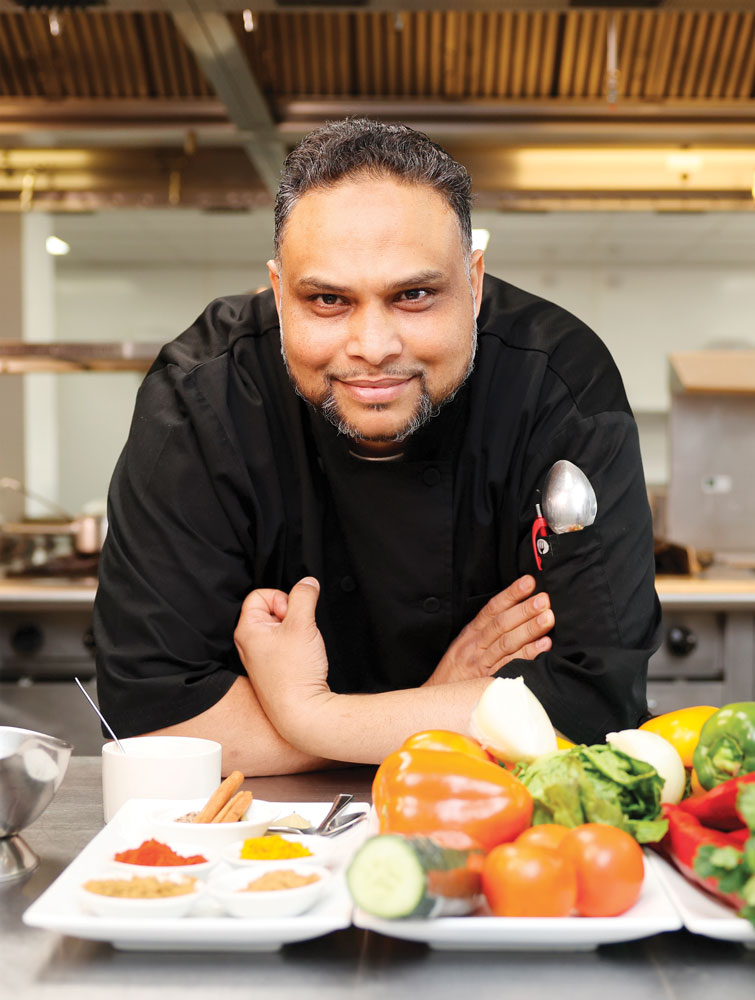Atikur Rahman is making an impassioned plea for more training for the curry house sector
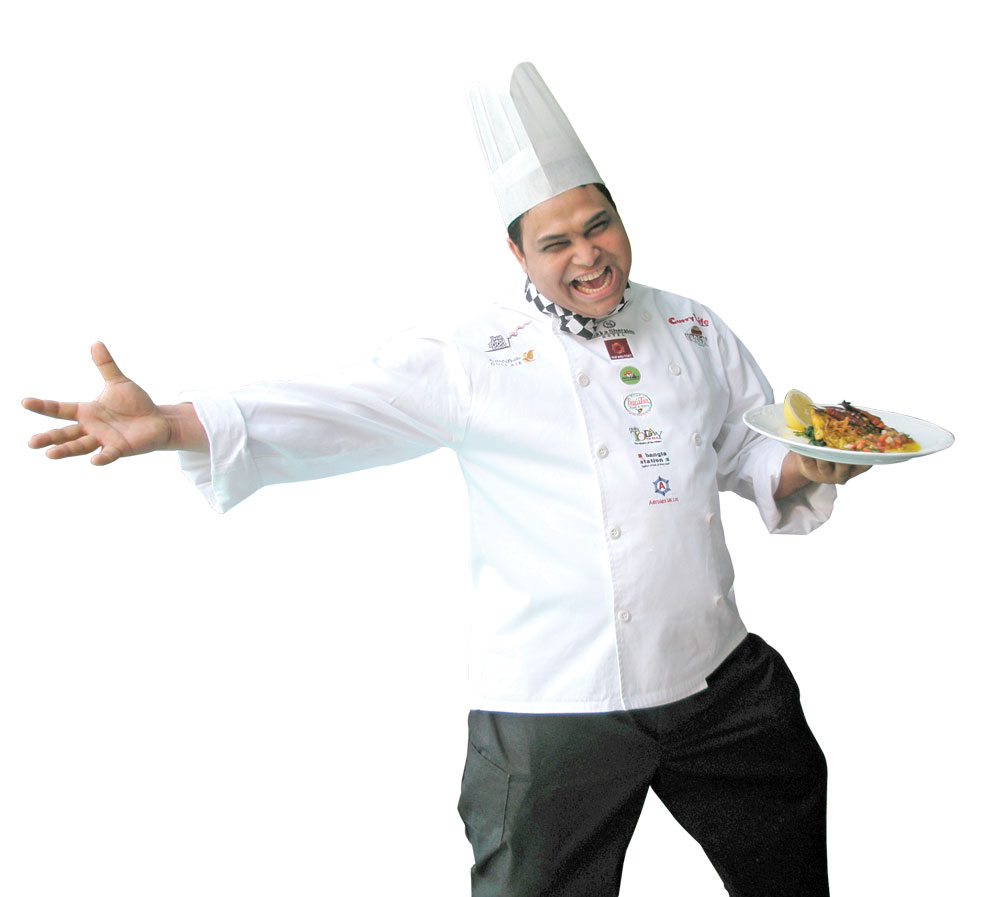
As chef at Brick Lane’s Graam Bangla restaurant, with many years of experience working as a consultant to curry houses and having been involved with the Bangladesh Caterers Association (BCA), Atikur Rahman is undoubtedly in an excellent position to comment on the state of the curry house sector.
“One of the biggest issues for curry houses is a lack of trained chefs,” he says. “I need to organise training for chefs – if we want to save the curry industry, we must act right now. Every day, curry houses are closing. We might bring chefs from abroad, but we still have to train them as they need to learn different cooking methods. Healthy dishes and organic food with all the flavour are the new trends – you need to know the calories and ingredients you are using.”
Rahman came to the UK in 1999, when he was around 19 years old. He studied catering by working in a number of hotels, before moving to the Indian Nawab restaurant in Earls Court, where he says it was sometimes challenging to learn on the job.
“I used to work in the kitchen, and when the chef added spices, he would never show me,” he says. “I found it quite upsetting but
it made me determined to be a chef, so I started to train professionally.”
To complement his training, Rahman worked at another restaurant in Fulham Road, and this time he picked up many tips and techniques from the chef, all of which sparked his passion for cooking.
“I first learnt to cook from my mother when I was 17, and this chef showed me all the basics and more,” says Rahman. “I learnt so many things from him, to the point that I was able to open a restaurant.”
He started Exotic East in Southall with a Punjabi partner. While the other restaurants specialised in meat dishes, Exotic East became a great favourite with its vegetable dishes particularly Vegetable Haven Pumpkin, oven-baked pumpkins and other unusual dishes. He then moved to Wales, to the Tamarind in Cwmbran and then to a restaurant in Abergavenny also called Exotic East.
Festival fever
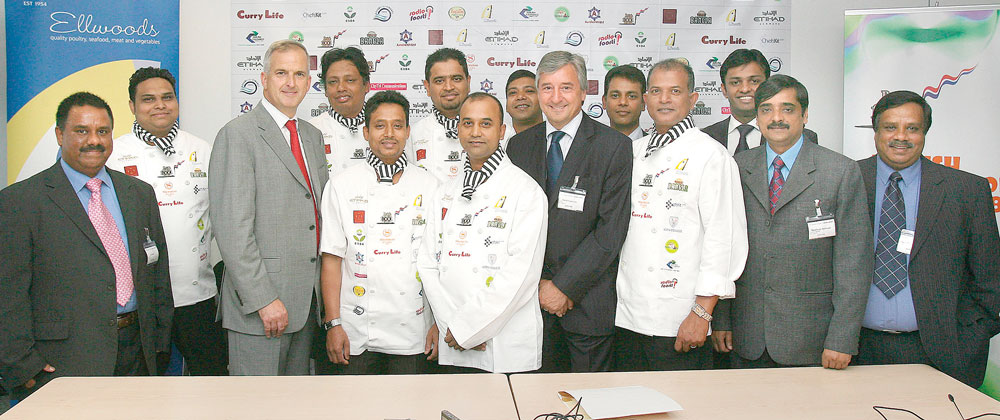
London press launch of the British Fusion Food Festival Dhaka at Canary Wharf in 2007
At this point, Rahman became involved with the British Curry Festival (which at the time was known as the British Fusion Food Festival). He took part in the event when it was hosted in Dhaka in Bangladesh in 2006, enabling him to showcase his fusion cooking style, with European dishes given an Asian twist.
“My experience in Dhaka changed my life – it was the first time I had received any exposure, and when I came back to the restaurant, we saw business almost doubling,” he said.”My confidence grew too – I was confident as a chef before, but on my return from the festival, I felt I could do much more, having met so many different chefs there, so it was an easy decision to attend the event the following year.”
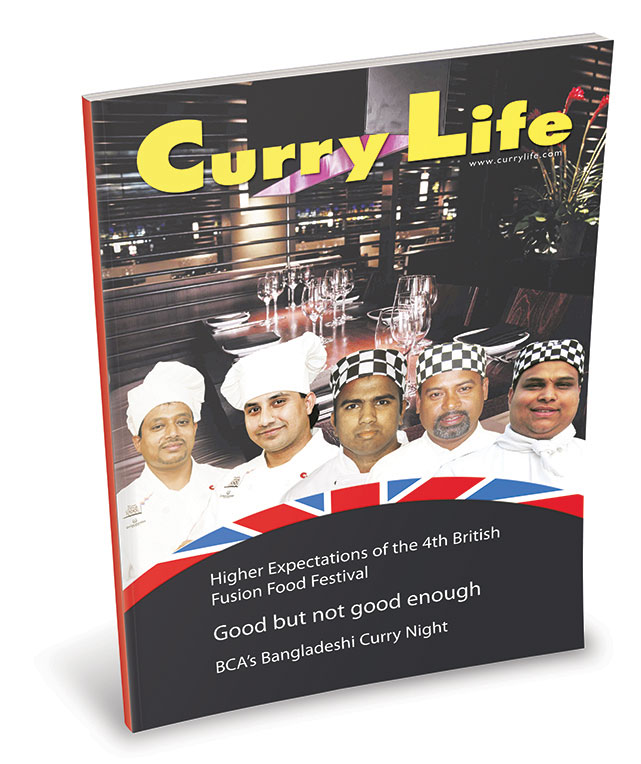
At the time, in a previous interview for Curry Life, Rahman said: “ For me it is a learning experience because I will be meeting some of the top chefs of the curry world in Dhaka. I go in a spirit of humility and hope when I return to be able to produce some famous traditional dishes.”
Rahman believes the concept of the Festival – founded in 2002 to promote British curry as a brand, showcases the best of British cuisine alongside popular curry house dishes.
“Bangladeshi chefs are great cooks, particularly when it comes to preparation and processes,” he says. “They can prepare many dishes in a short time frame, under pressure, and serve 200 people for example. That’s the expertise that curry house chefs have.”
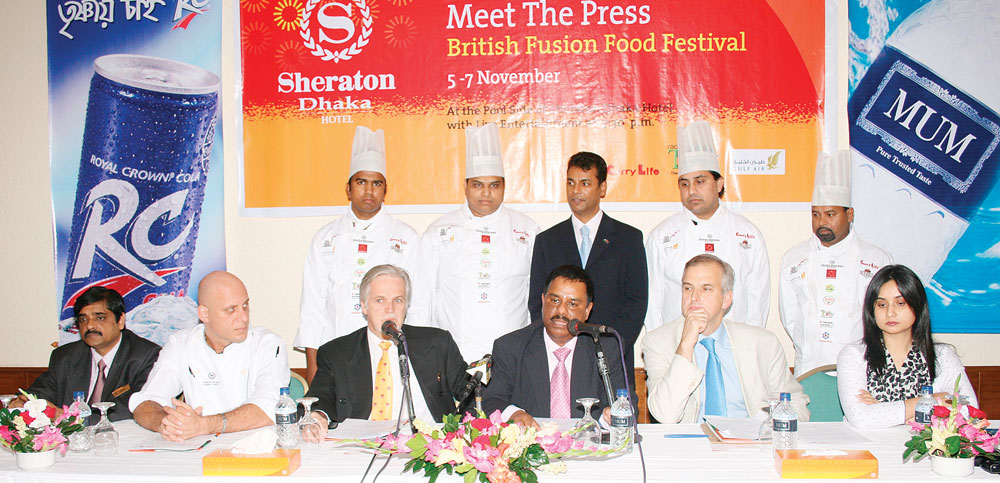
Chef Atik with other chefs at a press conference with British Fusion Food Festival organiser in Dhaka Sheraton in 2006.
Lessons learnt
Perhaps not unsurprisingly, following his success in Dhaka, Rahman set his sights on learning as much as possible. He left Exotic East for a job in London in 2009, working at Sir Terence Conran’s iconic restaurant Bluebird in the heart of Chelsea and also had stints as a personal chef. He also became involved with the Bangladesh Caterers Association, as a judge for their chef awards.
Over the years, Rahman has also built up an impressive repertoire of hundreds of recipes and Graam Bangla also served King Charles some dishes, including Hilsa fish when he visited the area in February. Having built up considerable experience with his work across many restaurants, at Curry Life events, and at the BCA, Rahman is currently involved in training chefs in Hammersmith, West London, focusing on food management.
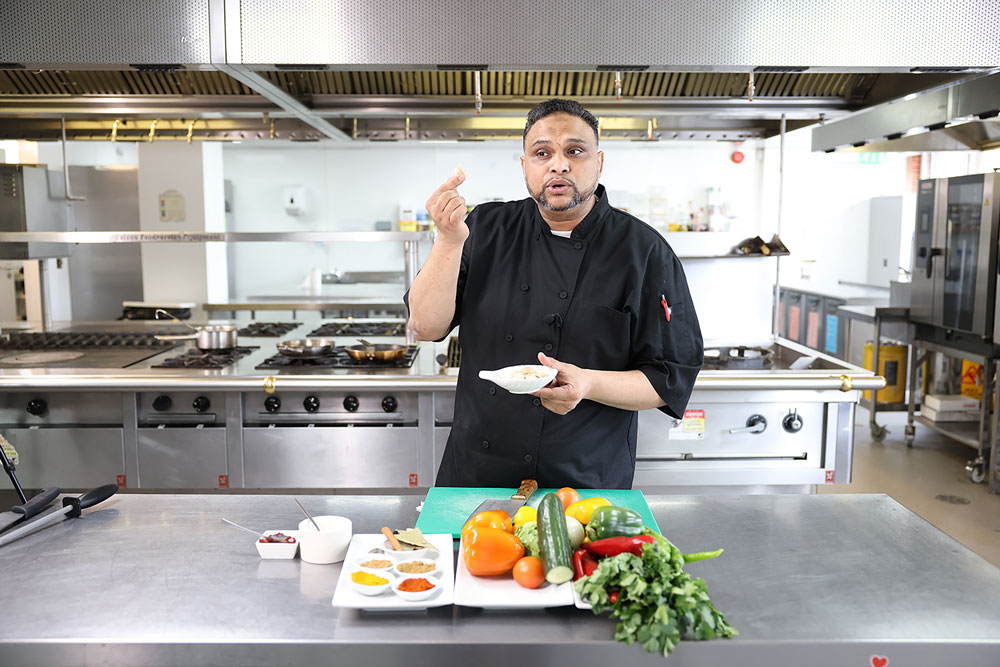
“If you are a really good curry chef, you still need someone behind you to help push you and keep you motivated,” he says. “If I hadn’t had the opportunity to meet Curry Life for example and take part in its festival, I probably would not have left Abergavenny. You need to learn about different chefs, cuisines and skills.”
Rahman has also taken part in cookery programmes on Bangladeshi TV channels in the UK, and he’ s not just focused on curry dishes but on modern European cuisine too.
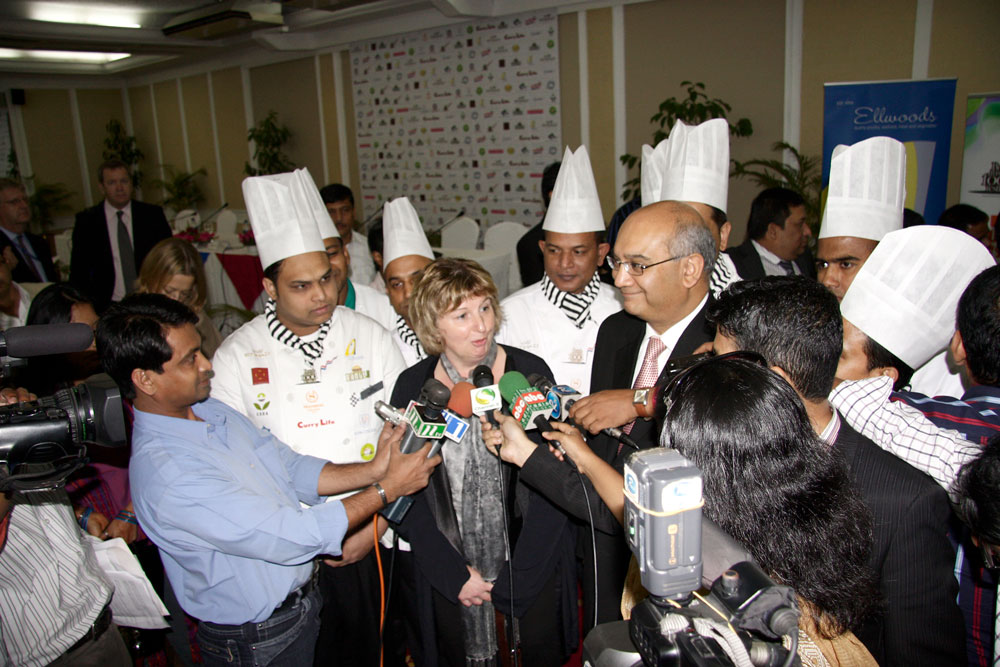
“We need to teach curry houses that it’s all about the presentation, which very often can be poor,” says Rahman. “ It’s not about how they cook or the chef but the way the food looks.”
Having been seriously ill during the pandemic, Rahman says his perspective has changed, prompting him to want to continue working to help others.
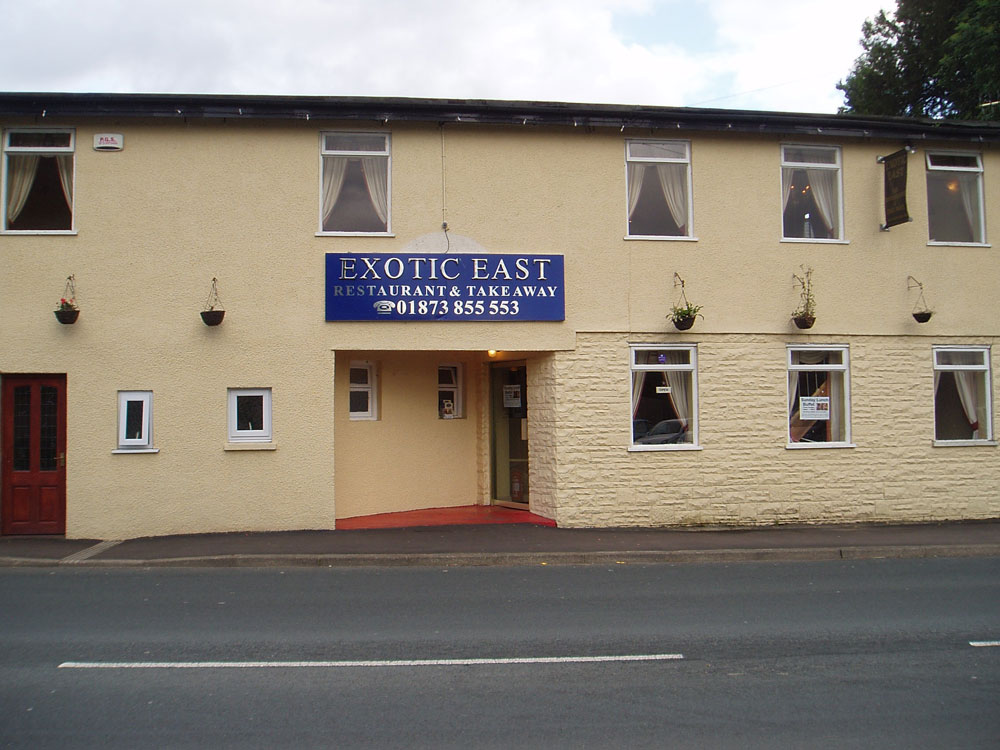
To this end, he is also heavily involved in charity work, including one organisation supporting orphaned children in Bangladesh, and another where he cooks a number of dishes free of charge, which the charity can then sell to raise funds. Cooking remains very much his passion – even when he was in the hospital, he says he spent most of the time thinking of recipes – after all, as Rahman puts it, ‘everyone loves curry.’



